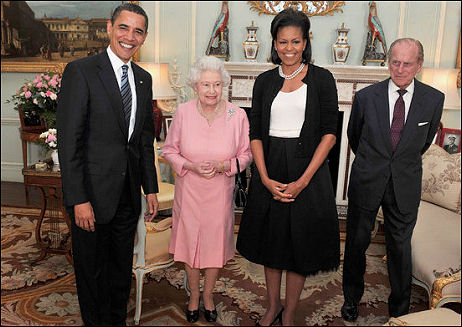In a Wrap column posted last night, director Rod Lurie (Nothing But The Truth) has ripped into Deadline Hollywood Daily‘s Nikki Finke as a “de facto McCarthy,” “destructive and dangerous, “carelessly lobbing accusations and innuendoes against unsuspecting victims,” “wing[ing] around rumors as if they were fact” even as she “protects her integrity by acknowledging up front that this is something she’s heard” and “very often [reporting stories with] agendas or scores to settle.”
Lurie initially ascribes the afore-mentioned characteristics and tendencies to a new gang of reporter-bloggers who “purport to run news items — ‘scoops,’ as they call them — in a shoot-first-and-do-the-interview-later kind of way…with in most cases no editors or lawyers to vet a story — either as a fact-checking measure or to determine whether there is exposure to a libel lawsuit.”
But his real focus is Finke due to her having reported two untrue things about him — one, that he’s hopscotched reps (i.e., has been skittish, temperamental and disloyal with his agents) and two, that he wanted to include a “rough sex” scene between a U.S. President’s daughter and a Secret Service agent in Commander in Chief, the TV series he created. So let’s cut out the qualifications — this is a Lurie vs. Finke piece. And Lurie is saying Finke “is emblematic of a true danger that now exists in journalism — the unchecked reporter.”
Lurie’s most provocative statement is that “there will soon be a revolution in legal Internet journalism. It simply cannot stand that reporters can just willy-nilly report rumors as fact. When that happens, reputations and careers can be destroyed at the whim of the reporter. Something has to and will happen or the entire institution of journalism — which will soon become almost exclusively Internet journalism — will be dead and buried.”
A journalist friend asked me the other night why I hadn’t jumped into the recent Finke-Variety-Wrap brouhaha more strongly. I guess it’s because Hollywood Elsewhere is a personality-opinion-attitude column, and so in terms of this one distinctive bent or tendency — a constant vetting of personal likes and dislikes, faves and devils — HE is similar to Deadline Hollywood Daily.
Unlike Finke, of course, I rarely beat the bushes for news story exclusives. I generate reviews, elitist or curmudgeonly snark, festival coverage, seasoned perspective, tough opinion, cultural complaints, standard movie-love (in feature, DVD and Bluray form), superb photographs, video and mp3 recordings, and all kinds of bizarre head-trip humor riffs — including reactions to hotel managers who fail to discern the meaning of a left-behind cowboy hat and pink-shirt restaurant managers who lack the grace to allow a customer to eat a slice of his own cake that he brought along in a bag.
But when exclusives do fall into my lap (a) I always make sure the facts are as throughly sourced as possible (and if I make a mistake, I fix it as soon as possible) or at least state that what’s being posted is merely the perspective of a known and trusted source, and (b) I always run said stories without naming the source. If I run someone else’s view of a situation or a film or Bluray disc, it’s because I agree with it or feel it at least has some merit. I think I’ve shown pretty good judgment on these matters as well as aesthetic-cultural issues. In any case, them’s the rules.
One definition of a Nikki Finke target is any form of old-boy sexism — any evident regarding of women as objects first and fully proportional and spherical human beings second. A good thing to be against, but Finke’s zeal in this regard can be nothing short of ferocious.
She tried to hurt me a couple of years ago by posting a single stupid-icky paragraph I included in a 15-paragraph letter that I’d privately sent to 3:10 to Yuma director James Mangold , which had been given to her by an ally of Lionsgate marketing chief Tim Palen. Why? Because first and foremost, I believe, there’s something toxic in her soul that prevents her from acting in a more considerate, comme ci comme ca fashion (what she did was appallingly un-mensch-like), but secondly because she considered me a sexist dog and therefore needed to be slapped down.
I suspect that her animus toward Lurie was fostered along the same vague lines — i.e., that because of Lurie’s fictional interest in including a “rough sex” plot point in a TV series he must be a sexist and therefore needed to be slapped around.
Finke hasn’t posted anything about Lurie’s piece on DHD so far, and probably won’t.




